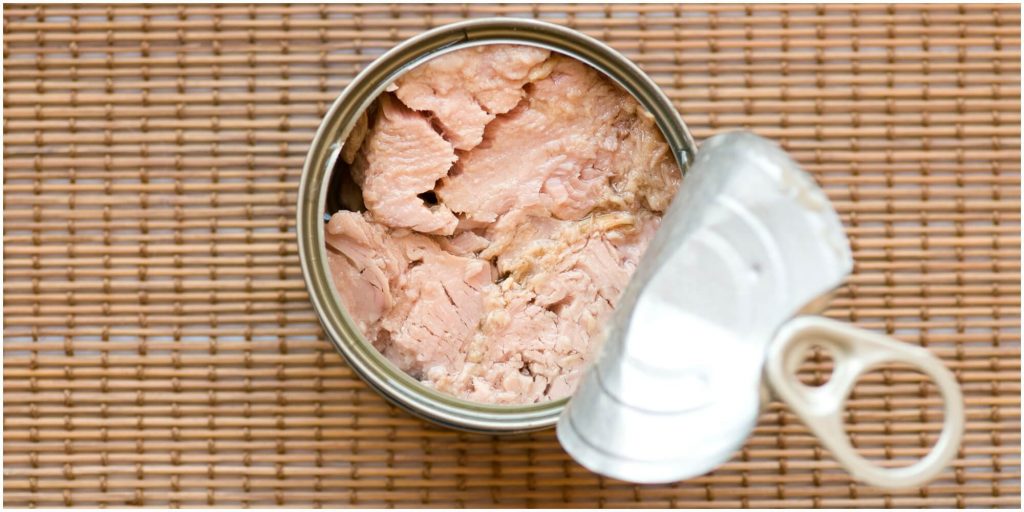
Is Canned Tuna Good for Your Health?

Canned Tuna is probably the easiest way to add fish to your diet as fresh fish can be pretty tricky to cook. Canned food is always considered to be convenient as it saves time. However, you need to ask yourself some basic questions like how safe it is to eat a fish that’s been stacked up in a can for days. Are heavy metals included in the product? Is the canned tune good for your health? Experts say that canned tuna is a substitute for fresh fish. The processing that canned tuna goes through and the sealing make it a good option. The concern regarding the inclusion of heavy metals in canned tuna is real, though. Dive in.
How Is the Fish Caught?
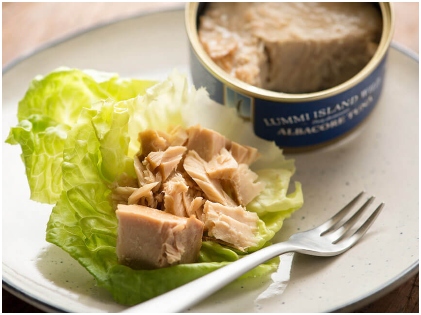 The tuna that you find are caught in different ways, or so does the International Seafood Sustainability Foundation reveal. Most of the time, the fish is caught by availing purse seining. The process involves putting a net into that part of the water where the possibility of finding a school of tuna is maximum. Weights attached to one end and of the net take into the depths of the water.
The tuna that you find are caught in different ways, or so does the International Seafood Sustainability Foundation reveal. Most of the time, the fish is caught by availing purse seining. The process involves putting a net into that part of the water where the possibility of finding a school of tuna is maximum. Weights attached to one end and of the net take into the depths of the water.
It is then pulled up to trap the tuna the moment they get surrounded. One of the alternative methods is long-lining, in which float-supported lin. An entire string of lines with baited hooks is attached to the long line. Tuna can also be caught through pole or line fishing or trolling. In these methods, the fish is drawn by a live bait that’s dipped into the water.
How Does the Tuna End up in a Can?
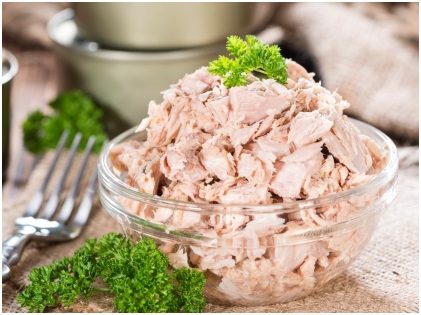 Well, the process of canning tuna differs from company to company. As per Bumble Bee, tuna gets delivered from the fishing boats to their cannery. Next, the tuna is frozen and then put into separate groups based on size and weight. After that, the fish goes through inspection, then thawed cleaned, and loaded into metal racks.
Well, the process of canning tuna differs from company to company. As per Bumble Bee, tuna gets delivered from the fishing boats to their cannery. Next, the tuna is frozen and then put into separate groups based on size and weight. After that, the fish goes through inspection, then thawed cleaned, and loaded into metal racks.
After this phase is completed, the fish is baked and cooked. The skin and bones are gradually removed, and the meat that remains is canned. Once the meat is put into the cans, they are filled up with salt, water, oil, or vegetable broth. The final stage depends on the type of tuna that’s canned. The lids are put on and sealed, and the cans are then cleaned and sterilized.
Is Canned Tuna Good for You?
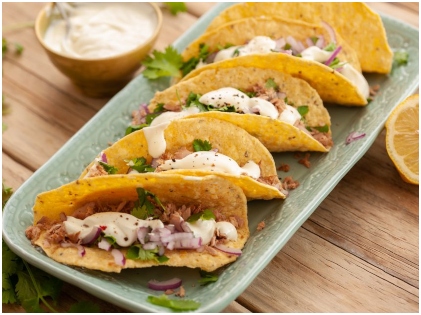 When you reach out for the canned goods shelf at your local supermarket, you will come across lots of tuna options such as different varieties of tuna cooked up by various methods. The most common variation of canned tuna that’s available in the United States happens to be skipjack. Albacore or white tuna is another type that people love to try. Usually, irrespective of the different varieties that you can lay your hands on, you will get more or less, the same kind of nutrition from all of them.
When you reach out for the canned goods shelf at your local supermarket, you will come across lots of tuna options such as different varieties of tuna cooked up by various methods. The most common variation of canned tuna that’s available in the United States happens to be skipjack. Albacore or white tuna is another type that people love to try. Usually, irrespective of the different varieties that you can lay your hands on, you will get more or less, the same kind of nutrition from all of them.
A one-ounce serving in oil contains 56 calories, 8.3 grams of protein, 2.3 grams of fat, and 416 milligrams of sodium with no trace of fiber and carbohydrates. A one-ounce serving in water comprises 24 calories, 5.5 grams of protein, 0.3 grams of fat, and 247 milligrams of sodium, with no trace of fiber and carbohydrates. Aside from being laden with an optimum amount of protein, canned tuna offers some essential nutrients such as omega-3 fatty acids and vitamin D.
How Much Tuna Can You Consume in a Day?
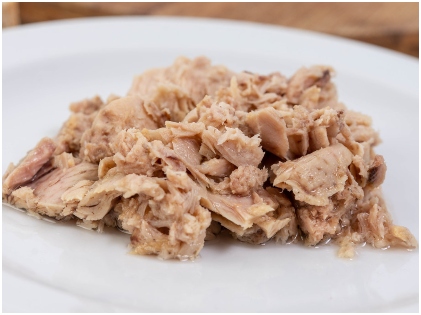 There are some varieties of tuna that include higher levels of mercury than other varieties. Therefore, light tuna is the best one that you can opt for. Light tuna contains less mercury than the different types since it’s prepared from the smaller as well as, the younger lot. The young tuna didn’t get much time to absorb mercury, and that’s the advantage. However, the amount you get with Albacore is more. On average, it’s safe to consume up to 12 ounces of light tuna or approximately 5 ounces of the albacore variety in a week. If you are pregnant, having between 8 and 12 ounces every week is recommended.
There are some varieties of tuna that include higher levels of mercury than other varieties. Therefore, light tuna is the best one that you can opt for. Light tuna contains less mercury than the different types since it’s prepared from the smaller as well as, the younger lot. The young tuna didn’t get much time to absorb mercury, and that’s the advantage. However, the amount you get with Albacore is more. On average, it’s safe to consume up to 12 ounces of light tuna or approximately 5 ounces of the albacore variety in a week. If you are pregnant, having between 8 and 12 ounces every week is recommended.
Canned tuna can be a healthy addition to your diet. But, choose not to have it every day. Add some tuna to salads to get an extra amount of protein. You can also mix a little amount with Greek yogurt, salsa, or avocado. An extra dose of seafood is surely going to make your platter delicious and nutritious at the same time.
More in Diet
-
`
Are Mono Diets Worth It – or Just a Dangerous Trend?
As summer brings on the pressure to slim down fast, the internet lights up with diet trends promising instant results. One...
August 3, 2025 -
`
Why Motivation Is Essential for Sustainable Fitness Success
Motivation isn’t something that shows up when it’s convenient—it’s something that needs to be built, shaped, and sustained. Many people struggling...
July 27, 2025 -
`
The Mystery of Human Body Parts That Science Still Can’t Solve
The human body is a patchwork of evolutionary choices, quirks, and mysteries. From skeletal structure to the tiniest gland, everything tells...
July 18, 2025 -
`
Why a Mediterranean Diet and Exercise Slow Bone Loss in Seniors
Bone health isn’t just a concern for the elderly—it’s something that starts to matter the moment the body begins to lose...
July 12, 2025 -
`
Want Better Memory? This Diet Could Help Keep Your Brain Sharp
Losing focus, memory lapses, or slower thinking—these aren’t just normal parts of aging. While cognitive changes do happen over time, lifestyle...
July 5, 2025 -
`
The Truth About Health Tracking Apps and Their Impact on Wellness
Scroll through social media or browse the App Store, and you’ll likely spot dozens of health tracking apps. They promise everything—from...
June 29, 2025 -
`
New Study Reveals Alzheimer’s Affects the Entire Body
Most people associate Alzheimer’s with memory loss and cognitive decline, assuming its impact stays confined to the brain. But new findings...
June 21, 2025 -
`
The One Simple Habit Mark Cuban Credits for His Success
Success doesn’t come from shortcuts or luck—it’s built on habits that stand the test of time. Mark Cuban, the outspoken billionaire,...
June 14, 2025 -
`
Thinking of a Detox Diet? Read This Before You Start
Detox diets continue to be one of the most talked-about trends in the wellness space. Whether it’s juice cleanses, tea plans,...
June 8, 2025

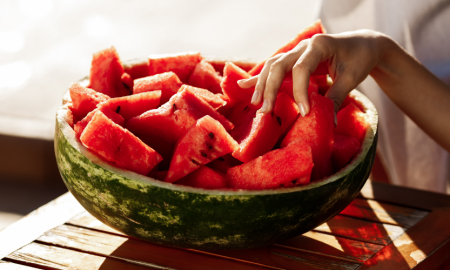







You must be logged in to post a comment Login